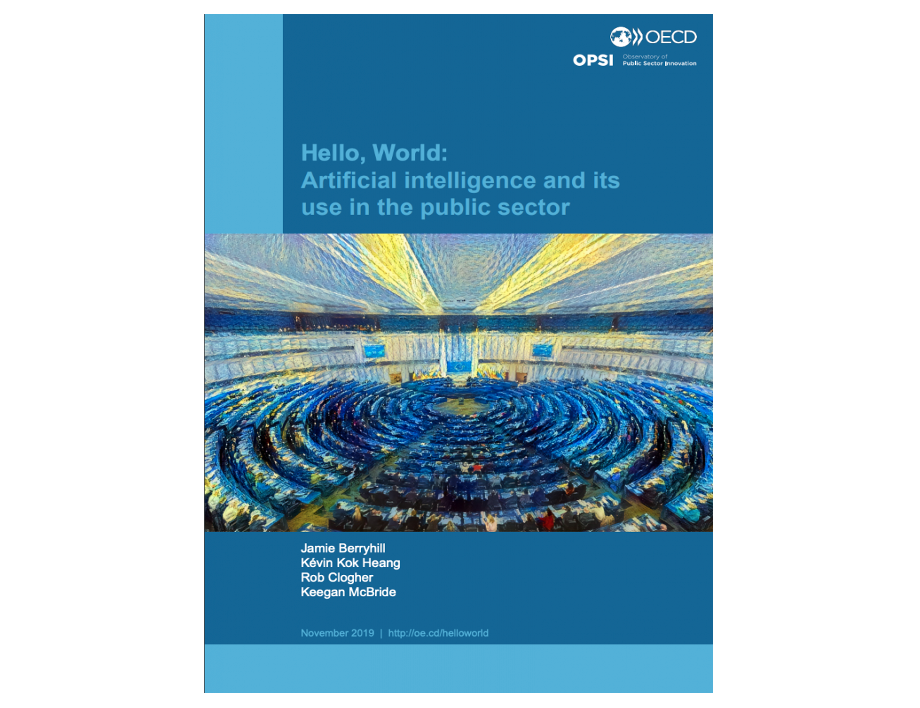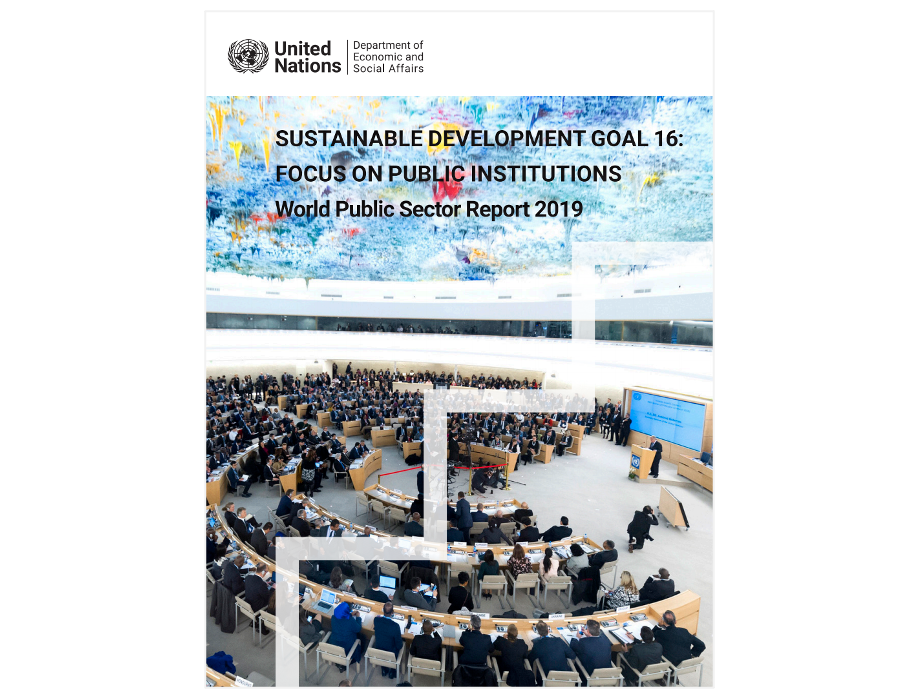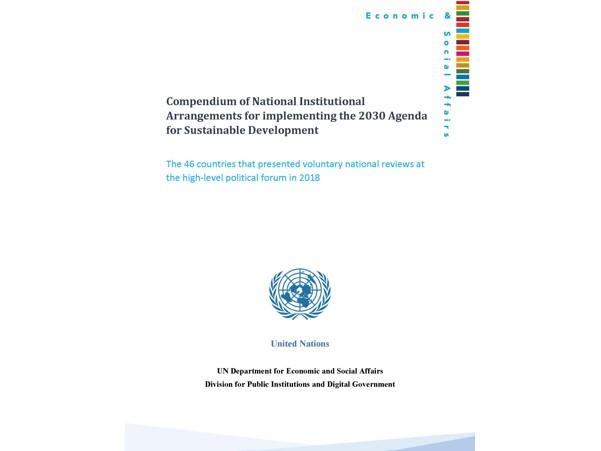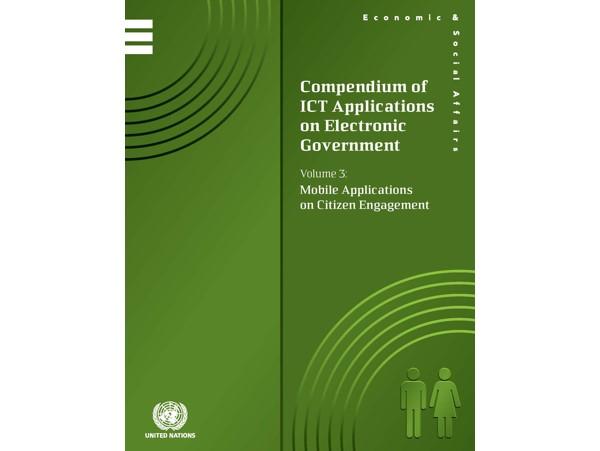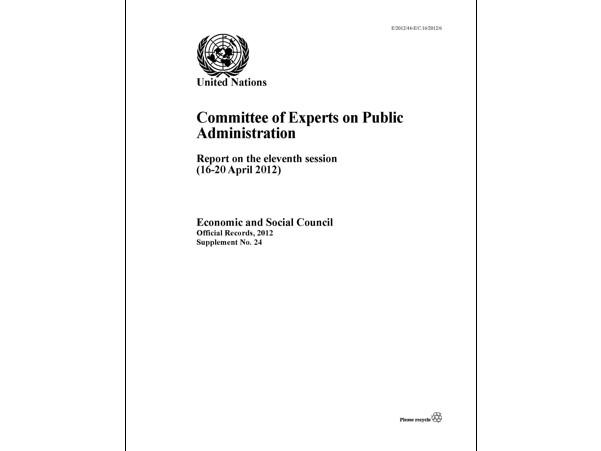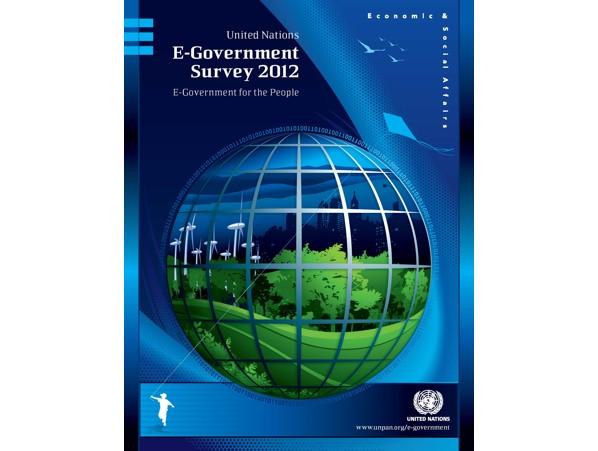Resources
Displaying 1 - 9 of 9
Hello, World: Artificial Intelligence and Its Use in the Public Sector
| English | Digital Government | Global | Publication | CIIIAP
The primer is the result of 10 months of research and analysis focused specifically on the use and implications of AI in government. It has benefited from the input of dozens of experts and stakeholders, including through a seven-week public consultation, which received about 1,500 comments from over 75 individuals or organisations, including governments, academics, AI experts, businesses, and civil society organisations. OPSI made many…
Report of Symposium on “Strengthening Capacities of Public Institutions for Transformation, Innovation and Ethical Leadership to Realize the 2030 Agenda for Sustainable Development and Agenda 2063 in East Africa"
| English | Governance and public administration | Africa | Report | UN DESA/DPIDG/UNPOG
The United Nations Department of Economic and Social Affairs (UN-DESA) through its Division for Public Institutions and Digital Government (DPIDG) and its Project Office on Governance (UNPOG) collaborated with the Government of Kenya and the Africa Union Development Agency (AUD-NEPAD) and organized a symposium under the theme “Strengthening Capacities of Public Institutions for Transformational Leadership, Innovation and Inclusion to Realize the…
World Public Sector Report 2019 - Sustainable Development Goal 16: Focus on Public Institutions
| English | Governance and Public Institutions | Global | Publication | UN DESA/DPIDG
The 2030 Agenda and the Sustainable Development Goals (SDGs) prominently feature institutions, both as a cross-cutting issue in many of the goals and as a standalone goal (SDG 16). The World Public Sector Report 2019 looks at national-level developments in relation to several concepts highlighted in the targets of Goal 16, which are viewed as institutional principles: access to information, transparency, accountability, anti-corruption,…
Compendium of National Institutional Arrangements for implementing the 2030 Agenda for Sustainable Development: 2019 Update
| English | Governance and Public Institutions | Global | Publication | UN DESA/DPIDG
Since the adoption of the 2030 Agenda for Sustainable Development in 2015, countries have continuously updated institutional arrangements in order to enable government institutions and other stakeholders to deliver the objectives encapsulated in the Agenda.
This compendium, prepared by the Division for Public Institutions and Digital Government (DPIDG) of the United Nations Department of Economic and Social Affairs, aims to document…
World e-Parliament Report 2012
| English | French | Spanish | Digital Government | Global | Publication | UN DESA/DPIDG
The World e-Parliament Report 2012 documents the efforts of legislatures to use information and communication technologies (ICT) to support their constitutional functions. The Report is based on the Global Survey of ICT in Parliaments 2012 conducted by the Global Centre for ICT in Parliament between February and May 2012, which is the third in a series of surveys that began in 2007.
The goals of these surveys and their accompanying World e-…
Compendium of ICT Applications on Electronnic Government, Volume 3: Mobile Applications on Citizen Engagement
| English | Digital Government | Global | Publication | UN DESA/DPIDG
This Compendium of ICT Applications on Electronic Government is a unique collection of current ICT applications being used directly by or in partnership with governments, governmental institutions and the private sector around the world to support administration and public service, while addressing governance challenges. The Compendium also presents private sector ICT applications that are available in the marketplace.
Volume 3 of the…
Compendium of Innovative E-Government Practices, Volume IV
| English | Digital Government | Global | Publication | UN DESA/DPIDG
In the face of increasing demands on governments to become more effective and efficient, coupled with a need to pay more attention to user needs, governments have been forced to rethink their approach to service delivery. Although many countries have implemented one-stop portals, online transactions and e-participation possibilities, developing public value in e-government is still at the initial stages of conceptualization and implementation.…
Report on the eleventh Session of the Committee of Experts on Public Administration
| Arabic | Chinese | English | French | Russian | Spanish | Governance and Public Institutions | Global | Publication | UN DESA/DPIDG
The present report contains the conclusions and recommendations of the eleventh session of the Committee of Experts on Public Administration, held at United Nations Headquarters from 16 to 20 April 2012. The Committee, which was established by the Economic and Social Council in its resolution 2001/45, consists of 24 experts appointed in their personal capacity for a four-year period. The Committee dealt with the following substantive items: (a)…
United Nations E-Government Survey 2012: E-Government for the People
| Arabic | Chinese | English | Spanish | Digital Government | Global | Publication | UN DESA/DPIDG
The United Nations global survey of e-government presents a systematic assessment of the use and potential of ICT to transform the public sector by enhancing efficiency, effectiveness, transparency, accountability, access to public services and citizen participation in the 193 Member States of the United Nations, and at all levels of development. By studying broad patterns of e-government around the world, the report identifies leading countries…
 欢迎来到联合国,您的世界!
欢迎来到联合国,您的世界!
